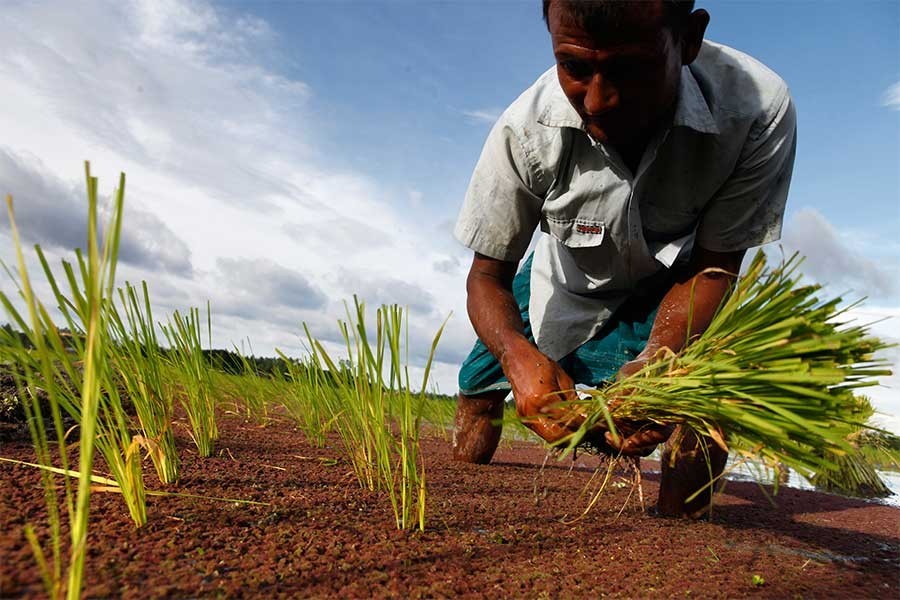After free fall in Boro paddy prices, farmers are showing little interest to cultivate rice this Aman season fearing further losses.
Aman is the second-largest cropping season that contributes 38 per cent to the country's total rice yield.
It is peak time to prepare seedbeds and plough croplands for transplanted Aman (T-Aman) production.
"But most of the farmers in our village have decided not to grow rice this Aman season," said Krishno Kundo, a Kaliabari villager under Morelganj upazila of Bagerhat.
Most of them are trying to grow vegetable and other crops for the bad experience they gathered in Boro season, he told the FE during a recent visit.
"We had to sell paddy at only Tk 500 a maund (40kg) in May against the production cost of Tk 880."
Mr Kundo said he witnessed a loss of Tk 18,000 in Boro season from his four bighas of land.
Paddy prices have started increasing but the benefits were going to the hands of big traders, he cited.
Farmers from Rangpur, Kushtia and Jashore regions also shared almost similar experiences.
They were either switching to other crops or leaving cultivation for this season, sources said.
According to the Department of Agriculture Extension (DAE), the country has targeted 15.0 million tonnes of rice in Aman season from 5.6 million hectares of land.
A record 14.3 million tonnes of Aman paddy were grown last year, DAE said.
DAE has targeted to make 0.42 million hectares of seedbeds for T-Aman production.
An official at the DAE monitoring unit said only 20 per cent of seedbeds has been prepared until June 27.
Aman is planted from May to September and harvested from October to January in Bangladesh.
"Hundreds of farmers are uninterested in Aman for their 40-60 per cent investment loss in Boro," said Bangladesh Agricultural Farm Labour Federation president Zainal Abedin.
The government has not given any compensation to the peasantry in this regard, he added.
Mr Abedin said the government declared to buy 0.4 million tonnes of paddy directly from Boro farmers. "But most of them sold their produce much earlier."
"Traders, millers and local political high-ups were eating up all the benefits, shrewdly depriving both farmers and consumers," he alleged.
The Department of Agricultural Marketing (DAM) data showed paddy prices were 30 to 35 per cent lower this year's Boro season than last year's.
Seasonal Birridhan-28 paddy was sold at Tk 520-620 per maund in Rangpur, Dinajpur, Rajshahi, Pabna, Kushtia, haor and other regions from April 25 to June 10.
But the production cost was Tk 880-960 a maund based on areas during the period, according to the DAE data.
Bangladesh Agrarian Research Foundation chairman Prof Abdul Hamid said if the trend continues, production of rice in Aman season might decline.
Any decline in Aman production means rice would go up in price next year, he observed.
Prof Hamid also suggested the government buy paddy directly from farmers so they could make some profit.
"For this Aman season, 16 million marginal famers should be compensated to motivate them to Aman farming," he said.


